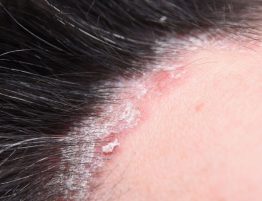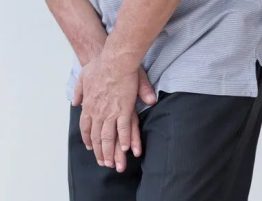
Myasthenia gravis (MG) is a neuromuscular disorder that causes weakness in the skeletal muscles, which are the muscles that the body uses for movement. It occurs when communication between nerve cells and muscles becomes impaired.
This impairment prevents crucial muscle contractions from occurring, resulting in muscle weakness.
Myasthenia gravis is an autoimmune disease. The body’s immune system makes antibodies that block or change some of the nerve signals to the muscles.
Signs and Symptoms
The initial, main symptoms of MG is painless weakness of specific muscles, not fatigue. The muscle weakness becomes progressively worse during periods of rest. Typically, the weakness and fatigue are worse towards the end of the day.
MG generally starts with ocular (eye) weakness; it might then progress to a more severe generalized form, characterized by weakness in the extremities or in muscles that govern basic life functions.
First signs and symptoms involve eye problems, such as:
- Dropping of one or both eyelids (ptosis)
- Double vision (diplopia), which may be horizontal or vertical, and improves or resolves when one eye is closed
Symptoms also include face and throat muscles problems, such as;
- Impair speaking – speech might sound soft or nasal, depending on which muscles have been affected.
- Cause of difficulty swallowing – patient might choke easily, making it difficult to eat, drink or take pills.
- Affect chewing – the muscles used for chewing might wear out halfway through a meal
- Change facial expressions – for example, a smile might look like a snarl
Neck and limb muscles problems – MG can also cause weakness in the neck, arms and legs. Weakness in the legs can affect how the patient walks. Weak neck muscles make it hard for the patient to hold up their head.
Treatments
There is no cure for MG. The goal of treatment is to manage symptoms and control the activity of the immune system.
Treatments may include;
- Medications – corticosteroids and immunosuppressants can be used to suppress the immune system. These medications help minimize the abnormal immune response that occurs in MG.
- Thymus Gland Removal – removal of thymus gland, which is part of the immune system, may be appropriate for many patients with MG. Once the thymus is removed, patients typically show less muscle weakness.
- Plasma Exchange – plasmapheresis is also known as a plasma exchange. This process removes harmful antibodies from the blood, which may result in an improvement in muscle strength.
- Intravenous Immune Globulin – a blood product that comes from donors. It’s used to treat autoimmune MG.
What We Offer
We at Almurshidi Medical Tourism will find the best doctors to cater to your needs. We are partnered with a wide network of hospitals and clinics that provide top quality medical experience.
We provide free medical estimates, make medical appointments, and provide several medical opinions if needed at no cost.
Contact Us
For more information contact us at +66822004040 or via WhatsApp








